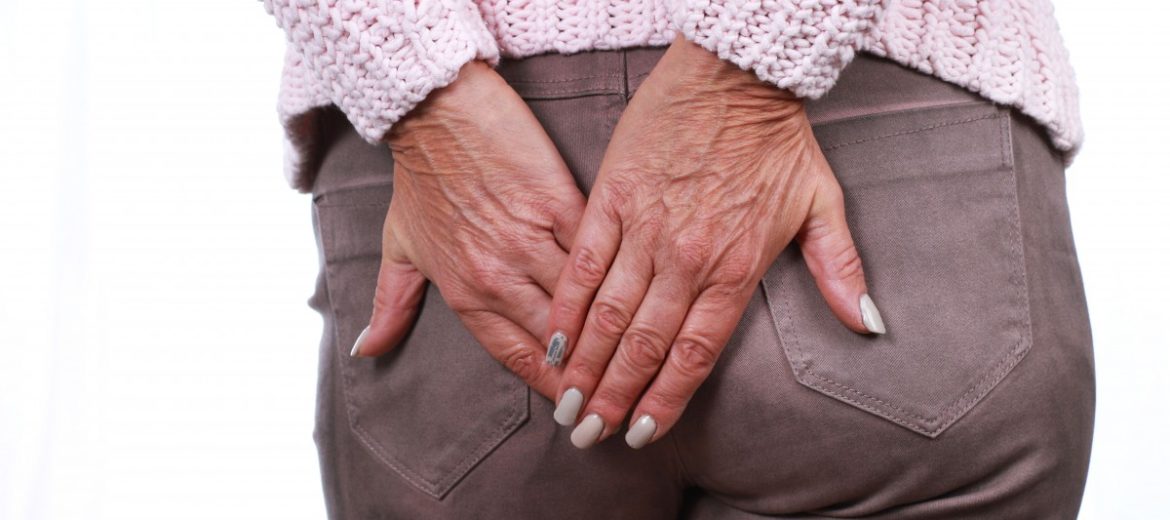Experiencing a sharp stabbing pain in the bottom while passing stool or while simply walking can be pretty scary but anal pain is something that many people have to deal with.
Anal pain, known as proctalgia in medical terminology, is the pain one experiences in and around the anus and rectum.
Dr. Nivedita Pandey, Consultant, Gastroenterology at Sitaram Bhartia Hospital says, “Rectum is the last section of the digestive tract and anus is the opening at the end of the rectum through which stool passes out of the body. This anal canal has many sensitive nerve endings. Any irritation in these nerves can cause anal pain.”
“It can start with a mild discomfort which increases over time. It can occur before, during or after passing stool and can last from a few minutes to a few hours depending on the severity of the condition. It can also be severe enough to interfere with your daily activities so it is always advisable to seek help from a doctor if your pain lasts for more than a day.”
Anal pain can be caused by any common, treatable condition but an important thing to note here is that you should go to a doctor whenever you experience anal pain, especially if it is accompanied by blood in stool.
“Seeking help from a doctor is even more important for women because first, women are more prone to experiencing anal pain than men and second, they are the ones who feel most embarrassed about talking to someone regarding their anal discomfort.”
Let us look at the common reasons why you may experience anal pain.
1. Anal Fissure
Anal fissure is a small cut or tear in the lining of the anus.
“When we pass large or hard stool, it tends to expand and over-stretch the anus causing the delicate skin to rip apart or tear,” Dr. Nivedita explains.
“This is a common reason why people may have anal pain. The tear causes a stinging or burning sensation in the anus especially while passing stool. This pain can even last upto a few hours after defecation.”
Then how do we treat an anal fissure?
Small tears usually heal on their own in a few weeks time. The only thing one can do during this time is to make sure your stool is soft and bulky instead of hard and large.
“This you can do by including a lot of fibre in your diet. Over-the-counter fibre supplements and stool softeners can be used too. You can opt for warm tub baths (sitz baths) to relieve the pain.”
In case the tear becomes severe and fails to heal with non-surgical treatment options, surgery can be used to repair it.
2. Anal Abscess and Fistula
Abscess is a pus-filled cavity which develops when the glands situated inside the anus get blocked and infected.
When an abnormal tunnel-like passageway connects this infected cavity with the skin near the anus, it is called a fistula.
“Most fistulas are caused as a result of an abscess.”
Along with constant anal pain which becomes worse while sitting, one might experience skin irritation, swelling and redness around the anal area.
Can fistulas be treated with conservation methods?
Dr. Nivedita says, “In most cases of fistulas, surgery is required to treat it. Surgery involves draining the abscess of pus and closing the tunnel. But if you seek treatment early, you can prevent the disease from progressing.”
Piles or hemorrhoids is a common condition in which the blood vessels present in the anal canal become swollen, hard and painful. When these swollen vessels become large, they can form a lump and even hang out of the anus.
This condition causes pain while walking, sitting or having bowel movement.
“Hemorrhoids develop due to increased pressure on the anus. This happens when we continuously strain to pass stool. That is why people suffering from chronic constipation or diarrhea are more prone to developing piles.”
Common symptoms of this condition apart from anal pain are:
- Itchiness in region near the anus
- Blood in stool
- Feeling of a lump coming out of the anus
- Soreness and redness in the anal area
The main aim of piles treatment focuses on curing the cause. In case of constipation, regulating the bowel movements and softening the stool by eating fibre-rich food and using suppositories help in getting relief from the painful symptoms.
Apart from these common causes, there are some lesser-known reasons of experiencing anal pain. These not so common causes are:
- Inflammatory Bowel Disease like Crohn’s disease
- Fungal infection or a Sexually Transmitted Infection
- Anal cancer
As common as anal pain is, like most medical conditions, it can be avoided by taking certain preventive measures.
How to prevent anal pain?
Keep in mind the following tips to keep anal pain at bay:
- The most important thing is to prevent or treat constipation. Regular bowel movement is not only healthy for your body but also prevents a lot of anal disorders. You can do this by making sure your bowel movements are regular and your stool is soft. This can be achieved by switching to a fibre-rich diet and drinking lots of water on a daily basis.
- Always wipe your anal area gently. Rubbing the anal area intensely with dry toilet paper may lead to inflammation and irritation.
- Keep your anal region dry by changing your underwear frequently.
- Always opt for a condom while indulging in anal intercourse.
- Avoid using synthetic soaps and perfumed personal hygiene care products.
- Wear light, cotton underwears and avoid going for tight clothing.
You never know when you might experience anal pain but having some knowledge beforehand goes a long way in not only preventing such uncomfortable circumstances but also encouraging people in seeking medical guidance instead of avoiding it for the fear of embarrassment.


